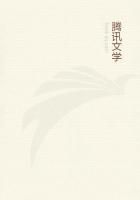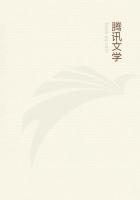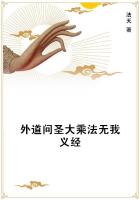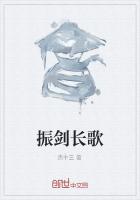THE OATH OF RAMES AND OF TUA
Still robed Tua lay upon a couch, for she would not seek her bed, while Asti stood near to her, a dark commanding figure.
"Your Majesty has done strange things to-night," said Asti in her quiet voice.
Tua turned her head and looked at her, then answered:
"Very strange, Nurse. You see, the gods and that troublesome son of yours and Pharaoh's sudden sickness threw the strings of Fate into my hand, and--I pulled them. I always had a fancy for the pulling of strings, but the chance never came my way before.""It seems to me that for a beginner your Majesty pulled somewhat hard," said Asti drily.
"Yes, Nurse, so hard that I think I have pulled your son off the scaffold into a place of some honour, if he knows how to stay there, though it was the Council and the lords and the ladies, who thought that /they/ pulled. You see one must commence as one means to go on.""Your Majesty is very clever; you will make a great Queen--if you do not overpull yourself.""Not half so clever as you were, Asti, when you made that monkey come out of the vase," answered Tua, laughing somewhat hysterically. "Oh!
do not look innocent, I know it was your magic, for I could feel it passing over my head. How did you do it, Asti?""If your Majesty will tell me how you made the lords of Egypt consent to the sending of an armed expedition to Napata under the command of a lad, a mere captain who had just killed its heir-apparent before their eyes, which decree, if I know anything of Rames, will mean a war between Kesh and Egypt, I will tell you how I made the monkey come out of the vase.""Then I shall never learn, Nurse, for I can't because I don't know. It came into my mind, as music comes into my throat, that is all. Rames should have been beheaded at once, shouldn't he, for not letting that black boar tusk him? Do you think he poured the wine over Amathel's head on purpose?" and again she laughed.
"Yes, I suppose that he should have been killed, as he would have been if your Majesty had not chanced to be so fond----""Talking of wine," broke in Tua, "give me a cup of it. The divine Prince of Kesh who was to have been my husband--did you understand, Asti, that they really meant to make that black barbarian my husband?
--I say that the divine Prince, who now sups with Osiris, drank so much that I could not touch a drop, and I am tired and thirsty, and have still some things to do to-night."Asti went to a table where stood a flagon of wine wreathed in vine leaves, and by it cups of glass, and filling one of them brought it to Tua.
"Here's to the memory of the divine prince, and may he have left the table of Osiris before I come there. And here's to the hand that sent him thither," said Tua recklessly. Then she drained the wine, every drop of it, and threw the cup to the marble floor where it shattered into bits.
"What god has entered into your Majesty to-night?" asked Asti quietly.
"One that knows his own mind, I think," replied Tua. "There, I feel strong again, I go to visit Pharaoh. Come with me, Asti."When Tua arrived at the bedside of Pharaoh she found that the worst of the danger was over. Fearing for his life the physicians had bled him, and now the fit had passed away and his eyes were open, although he was unable to speak and did not know her or anyone. She asked whether he would live or die, and was told that he would live, or so his doctors believed, but that for a long while he must lie quite quiet, seeing as few people as possible, and above all being troubled with no business, since, if he were wearied or excited, the fit would certainly return and kill him. So, rejoicing at this news which was better than she had expected, Tua kissed her father and left him.
"Now will your Majesty go to bed?" asked Asti when she had returned to her own apartments.
"By no means," answered Tua, "I wear Pharaoh's shoes and have much business left to do to-night. Summon Mermes, your husband."So Mermes came and stood before her. He was still what he had been in the old days when Tua played as an infant in his house, stern, noble-looking and of few words, but now his hair had grown white and his face was drawn with grief, both for the sake of Rames, whose hot blood had brought him into so much danger, and because Pharaoh, who was his friend, lay between life and death.
Tua looked at him and loved him more than ever, for now that he was troubled some new likeness to Rames appeared upon his face which she had never seen before.
"Take heart, noble Mermes," she said gently, "they say that Pharaoh stays with us yet a while.""I thank Amen," he answered, "for had he died, his blood would have been upon the hands of my House.""Not so, Mermes; it would have been upon the hands of the gods. You spring from a royal line; say, what would you have thought of your son if after being struck by that fat Nubian, he had cowered at his feet and prayed for his life like any slave?"Mermes flushed and smiled a little, then said:
"The question is rather---What would you have thought, O Queen?""I?" answered Tua. "Well, as a queen I should have praised him much, since then Egypt would have been spared great trouble, but as a woman and a friend I should never have spoken to him again. Honour is more than life, Mermes.""Certainly honour is more than life," replied Mermes, staring at the ceiling, perhaps to hide the look upon his face, "and for a little while Rames seems to be in the way of it. But those who are set high have far to fall, O Queen, and--forgive me--he is my only child. Now when Pharaoh recovers----""Rames will be far away," broke in Tua. "Go, bring him here at once, and with him the Vizier and the chief scribe of the Council. Take this ring, it will open all doors," and she drew the signet from her finger and handed it to him.
"At this hour, your Majesty?" said Mermes in a doubtful voice.














